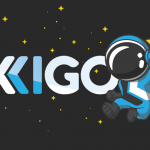Three Tips to Improve Search Results on Vacation Rental Websites
Optimized vacation rental websites that support a strong channel management strategy are integral to increasing direct bookings from Google Search. Within these websites and OTA channels are keywords and content that move visitors in your direction, seemingly like magic.
But it’s not an illusion. Behind the scenes, search engine optimization (SEO) plays a key role in helping vacation rental websites stand out among the crowd. Your website and your property listings on OTAs work together to give you a strong online presence with search engines. The process of developing an SEO strategy, however, can seem stressful for many vacation rental managers.
“Depending on size of company, most property managers are overwhelmed by the different facets of building a website,” Kigo Implementation Consultant Amber Garrett said. “They go into building a website and managing vacation rental properties and don’t realize how beneficial things such as SEO can be to them. We can give them a blueprint to help them find the tools to be successful, and make it simple for them.”

Quality information gets gathered and delivered
Garrett and the Kigo team have put together a guide on optimizing websites using SEO. In it are tips to increase the appearance of what a search engine looks for when it crawls the web looking for information. Google (or any other search engine) has a “crawler” or Google Bot that ventures out and gathers information about all of the content that is published on the internet. Those crawlers gather such information, and deliver it to the search engine to build an index to add to their catalogs. The index is then fed through an algorithm that attempts to match the content to the keyword that a web user searches for.
“We look at how to optimize images, how to track data and other traffic sources like Facebook and Bing,” she said. “It’s different ideas on how to increase your traffic and benefit from conversions from traffic sources.”
Here are three basic tips that can help vacation rental property managers optimize their websites:
1. Create relevant content
Because Google and other search engines crawl your website looking at text, it’s imperative to have high volume of content, Garrett says. A website with no text will simply look empty to the search engine.
“Ensuring that you have great and informative content will ensure that the search engines know who you are, where you are, and what you are about,” she said.
Making sure content is relevant to the industry is critical. It's also important to keep the property data on your website, along with your listings on OTAs, consistently up-to-date.
Make sure your NAP (name, address, and phone number) for all locations are correct and match the same format. Google likes consistency, so don't use "st." in one area and spell out "street" in another.
You should also keep property photos updated, and be sure to showcase any new renovations or upgrades you have made. If construction has taken place in your area or points of interest have changed, it's important to update any directions listed on your website.
2. Use detailed property descriptions
The main goal of SEO is to help search engines and users find your website. Vacation rental guests often begin the research on Google with very broad topics in mind and as they search, they narrow down results. Keywords work the same way.
“One of the biggest factors of SEO is keywords,” Garrett said. “If you run a vacation rental industry, you’re going to want vacation rental terms on your site. Terms that are irrelevant won’t benefit you much.”
A guests’ search process might look like this:
Florida vacations > Florida vacation homes > Florida vacation rentals > Destin, Florida vacation rentals > Destin, Florida vacation rentals near the beach
Put yourself in the shoes of a first-time visitor to your area, which will help you decide what questions your content should help answer. Then, use tools like SEMrush, Google Correlate, Google Keyword Planner, Keywordseverywhere.com and Kparser keyword suggestion tool to prioritize the keywords for your industry and determine the most essential ones to include on your website.
A good rule of them for keywords and your website content is to be descriptive, detailed and honest.
Instead of using "pool", use keywords like "heated pool", "indoor pool", "covered pool" or "pool with walk-up bar." Or instead of "Destin, Florida rentals", try "Destin, Florida condo rentals", "Destin, Florida condo rentals beachfront", "Destin, Florida condo rentals oceanfront" "Desitin, Florida condo rentals pet friendly" or "Destin, Florida condo rentals lazy river."
These keywords should be input into the following locations:
- Page Content
- Page Titles
- Headers
- Image Captions/Titles (act as keywords for Google image searches)
- Meta Titles & Meta Descriptions (Visit this link for additional details on how to create good tiles and snippets for your descriptions)
3. Set up Google Analytics
One of the external tools Kigo recommends clients use is Google Analytics, which marketing results for your website. Examples are how many visitors that are attracted to the website, where they are coming from and how traffic is converting.
A website’s SEO results can be easily followed by observing increased better positioning of the site on the search engine results pages, verifying that the site is moving in the right direction. Utilizing Google Analytics will help increase the number of website views, traffic from particular sources (organic search, or individual web browser names) and website conversions from the search engine traffic provided.
“We help clients set that up so they can be more unified and have a platform to measure the results of their marketing efforts,” she said. “It’s definitely key.”
SEO positioning doesn’t happen overnight
Be patient, Garrett says, because effective SEO can take anywhere from six to twelve months to fully optimize. SEO is a foundation being built for the website’s presence and takes time for Google (or other web browsers) to see your company as an authority in the information you are presenting.
“SEO is a marathon, not a sprint,” she said. “If you would like to sprint, you will need to invest in SEM.”
Learn more about how Kigo vacation rental websites can help position your properties portfolio for greater visibility today!







